Interview with author: Emmanuelle de Maupassant
- kissmybook
- Dec 1, 2016
- 6 min read

Emmanuelle de Maupassant writes our darker motivations, the unsettling, and the erotic.
Authors inspiring her writing include Margaret Atwood and Donna Tartt, Angela Carter, Sarah Waters, Michel Faber, Fay Weldon, A.S Byatt and Jeanette Winterson.
Angela Rose : Your name, which I presume is a pen-name, is unusual. Why did you pick 'Emmanuelle de Maupassant' and what is the meaning behind it?
Emmanuelle : Yes, absolutely a pseudonym. Like most writers in my genre, I need to protect family members from unwanted scrutiny. I chose this particular pen-name to convey a cocktail of the literary and the sexual. It also rather tickled me, as my grandfather was Emmanuel: he was Jewish, from Ukraine, and came to London in the 1930s. I like to think that he’d have been outwardly horrified, but inwardly pleased.
AR : How did you start writing erotica?
Em : I’d written for some time, mostly travel/cultural articles and guides (such as for Dorling Kindersley, and small pieces for journals and newspapers). About ten years ago, I began researching Slavonic superstitions and customs (living at the time in one of the former Soviet states) and became drawn to creating my own folk tales based on those findings (these I later released as my ‘Cautionary Tales’). Each story pulled strongly towards sexual elements: some bawdy, some far darker. At the time, I didn’t recognise these as ‘erotic fiction’ and I had no intended audience. However, in writing them, I began to realise how far sexual motivation fascinated me.
I then began playing with the idea of a novella set in the Victorian age, exploring themes of sexual constraint and desire for freedom, and the hypocrisy of the age. It was hugely enjoyable to write. Having read a great many 19th century novels, it appealed to me to write ‘my own’ featuring a whole lot of raunch!
AR : Are you a natural writer of erotica or did you have to learn it?
Em : I’ve not received any formal training in creative writing, although I have a joint degree in English Literature and Classical Studies (which included reading of Greek and Roman plays, poetry, and epic and historical narrative). There’s plenty of sexual motivation in Greek and Roman literature! (and in much of the English literary canon too).
I believe that we change a little every day, through our interactions, and have endless capacity to reinvent, and to view the world (and our own self) in new ways. To open our mind is to learn.
As for formal classes, I’d love to take part in Rachel Kramer Bussel’s LitReactor workshop, which is very well regarded. I’m also determined to join Lidia Yuknavitch’s Corporeal Writing.
AR : How do you write a good sex scene?
Em : What’s ‘good’ sex to one person may not be to another, since taste in erotic fiction is a matter of personal preference. Not everyone, for instance, enjoys reading about the power-play of domination and submission, or about sexual sadism-masochism. I tend to read (and write) to gain some insight into why characters are engaging in a certain way, or I want to follow them on a journey of self-revelation. Writing style (or voice) is also very important to me; I’m engaged by originality, and by the brutal, poetic power of prose.
In my own writing of ‘sex’, recurring themes include exhibitionism and ‘crossing lines’, usually in the context of a desire to break free of constraint. I also find it interesting to examine hypocrisy. The Victorian setting (e.g. of my Noire series) lends itself well.
I’d consider a scene ‘successful’ if it jolted the reader into some new awareness of themselves, or of some aspect of their social environment. However, the erotic can pack a punch in many ways: intellectual, emotional and visceral.
Sexual arousal is a powerful element in our human condition: a primary ingredient in the cocktail. It’s fascinating to look at how far a writer can access the mind of the reader in this respect. What can words alone achieve? When readers contact me to say how much they enjoy the erotic content of my books, I do feel a sense of achievement. However, I’ve had just as many people message me to say that they’ve engaged with a story in other ways. Exploration of the sexual is a ‘way in’ to understanding other parts of our nature.
AR : Which erotic authors do you enjoy reading?
Em : The wonderful thing about fiction is that it allows us to explore our inner world, our imagination. We can ‘act out’ various scenarios; we can try on other personas, walk in other shoes. It’s an incredible medium, as a writer and as a reader, for learning more about yourself within a ‘safe’ space. There are no rules in fiction.
When I’m reading other authors, whether categorised as ‘erotic’ or otherwise, I’m looking for originality: in concept or style. I want to be surprised, to be shown something new, or for something familiar to be presented in a way I’d not considered before. I want to experience an aspect of our humanity in a new light. At the moment, my favourite authors, those who open up avenues of thought for me in this way, include Sarah Waters, Jeanette Winterson, Fay Weldon and AS Byatt. I adore Michel Faber’s ‘Crimson Petal and the White’, Donna Tartt’s ‘Secret History’, Josephine Hart’s ‘Damage’ and Patricia Duncker’s ‘Hallucinating Foucault’.
Much of the writing I enjoy explores ‘the erotic’ – in a manner raw or sensual – but without being explicit, and is marketed as literary fiction. It delves into our sexual psyche, our sexual motivations, into the realm we rarely express openly, for fear of judgement. Sexual motivators are evident in a great deal of narrative, entwined with other themes; erotic fiction explores them with greater focus.
Among more ‘traditionally’ labeled authors of erotic fiction, I have huge admiration for Jonathan Kemp. His ‘Twenty-six’ is a triumph of originality: in form and use of language. For those new to the genre and wishing to experiment with reading short stories, I recommend visiting the websites of Remittance Girl, Malin James and Adrea Kore. Their writing is not only innovative and insightful but beautifully crafted. They use prose artfully.
I’m continually discovering talented authors within the erotic fiction genre. For those wishing to dip their toe in the water, I suggest visiting the Kiss Me Quick’s Erotica Podcast, for audio versions of stories.
AR : What's the difference between erotic fiction and porn and do you think readers get them mixed up?
Em : Most readers currently associate erotic fiction with steamy-romance. However, the traditional definition of ‘exploring the erotic’ wades into far more transgressive territory: the defiant questioning of cultural norms and expectations, and a dissection of not only pleasure but of the painful consequences of our actions.
Bataille described a place of ‘discontinuity’, where our sense of self becomes ‘disrupted’, such as through extreme pleasure, pain or mental anguish. Josephine Hart’s ‘Damage’ provides a good example of this. We all have our inner limits (those we place upon ourselves: our self-imposed lines in the sand). Erotic fiction has the potential to push us towards these limits, to dare us to look beyond them, at what discomforts us. It invites us to consider moral ambiguities, and to dig deeper into our motivations, as we watch fictional characters struggle with their own inner sanctions.
Fiction is a safe place within which we can reflect and explore, particularly that which we find unsettling to speak of in ‘real’ life. It thereby provides us with valuable opportunities to better understand our own self and our environment.
Fiction explores our thinking as well as our actions, and erotic fiction does just the same, while placing the focus on sexual desire (meanwhile, steamy-romance places the primary focus on love).
Porn looks more purely at physical sensation, without particularly examining motivation or consequences; its main purpose is to elicit sexual arousal.
In my view, anyone able to fully engage a reader’s attention (be that on a physical, emotional or intellectual level) is demonstrating significant writing skill, regardless of genre labels. There’s too much ‘snobbery’ in the literary world over what constitutes a worthy read.
AR : The Gentlemen's Club is the first in the Noire series, how many will there be and when can we expect the second volume to be published?
Em : I’ve been writing Volume Two (‘Italian Sonata’) over the past 12 months. The first in the series has received a far amount of acclaim, including being featured among Stylist Magazine’s recommended ‘sexy’ reads. So many readers have messaged me asking for the sequel; I’m aware of how many people are waiting for what comes next and feel that ‘Italian Sonata’ needs to not only live up to those expectations but to surpass them. I’m now feeling confident that I can meet that goal. The sequel will be available early in 2017.
Meanwhile, I’ve another release to announce: ‘Highland Pursuits’, set in 1920s Scotland. It’s a wonderful romp, and will be available for order early in the new year.
* Visit her website for articles on sexuality, writing craft and recommended reads : www.emmanuelledemaupassant.com
* Or follow her on Facebook : https://www.facebook.com/EMaupassant
* Find her books here : https://www.amazon.co.uk/Emmanuelle-de-Maupassant/e/B00NW4N2N8/ref=dp_byline_cont_ebooks_1










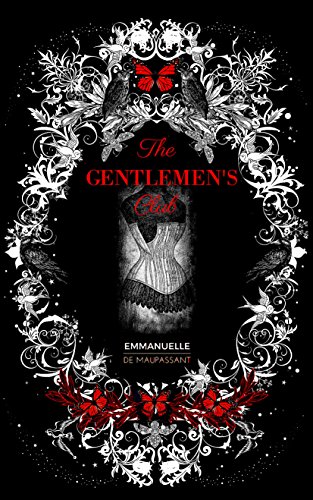

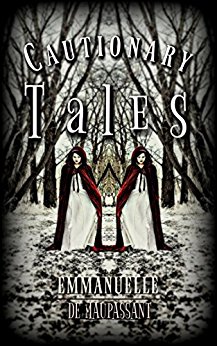

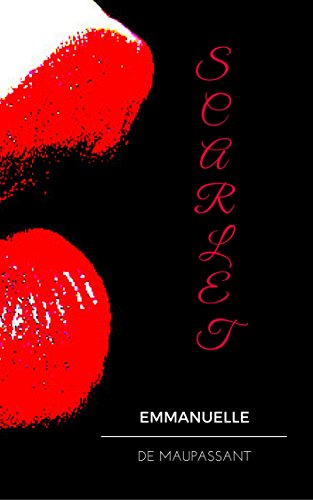

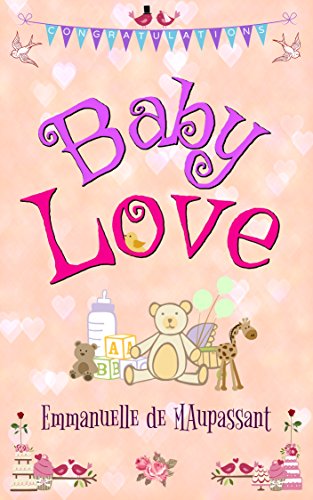

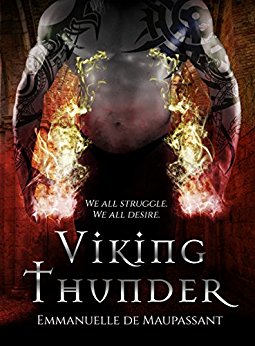

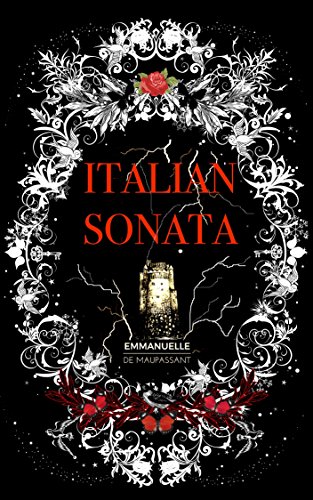
Comments